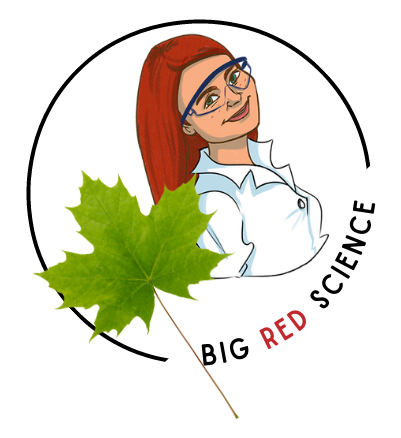
Anyone else remember being SO EXCITED in school when your teacher rolled the TV into the room?
Part of my philosophy of education involves ensuring that my classes are full of variety, and so I am a big fan of using high quality science movies in the classroom. And between PBS, BBC, and National Geographic – there is truly no shortage of options.
How do you get students to actually retain what they’re watching?
My method of using movies in the classroom is nothing special, but it’s effective.
I always have a worksheet that they need to fill out, and 90% of the time it’s one I’ve made myself. I’m picky about what I want! I want my students to tuned in, listening for details. The worksheet contains lots of factual questions, all in chronological order. Once I have a solid worksheet ready to go, this is my process:
- I give students a few minutes to read over the questions. I want them to get a sense of what they need to listen for.
- I start the movie. Students listen attentively and fill out the sheet as they go along.
- I never watch the whole movie in one chunk. Instead, I look for a logical place to stop after about 20 minutes.
- At that point, I have students check in with each other to fill in any answers they may have missed.
- I lead a discussion to take up the questions that they’ve answered. This allows time for questions to make sure everyone has understood what they’ve watched so far. I add in anything that I think is interesting.
- We resume the movie and start the cycle again.
I find this method to be effective because no matter how interesting a movie is, students might zone out for a while. Having them answer questions keeps them engaged, and the breaks to discuss what we’ve seen is another opportunity to check in and make sure they’re keeping up.
Plus, the handout serves as part of their notes for the topic!
My Top 5 Movies for the Science Classroom
*drumrollllllllllll*
5) BBC Life: Plants
I’ve found that plants have a reputation for being boring, and that makes me sad. This beautiful documentary does a lot to combat that reputation, with stunning time-lapse photography as well as an emphasis on cool plants and their relationships with parts of their environment. Plus, it’s David Attenborough. Who can resist?

4) National Geographic: Our Atmosphere
I use this movie as an introduction to gases in chemistry. It explores the various layers of atmosphere as well as how our atmosphere has changed since the beginning of time, and how it compares to the atmospheres of other planets in our solar system. Students appreciate the obvious connections this movie showcases between chemistry, physics, and environmental science. And it’s available on YouTube!

I’m a big PBS Nova fan! This is a three-part series that explores hominids. You learn about Lucy and homo erectus and the Neanderthals and the rest of the hominids. It’s a wonderful way to explore evolution and dispel certain misconceptions along the way. It’s long, but it’s worth it. I usually watch the last two parts with my biology students but if you have time to space out all three over a course, go for it!

2) PBS Nova: Hunting the Elements
I really love this movie. It’s a great introduction to a chemistry course. I find the main narrator endearingly nerdy, and this documentary helps kids make the connection that chemistry is actually everywhere. You learn all kinds of things from the mining industry to the elements most commonly found in our bodies to chemistry involved in the sound of a bell to which unexpected element repels sharks! SO. GOOD.

1) PBS Nova: What Darwin Never Knew
AHH I love this documentary so much! I use it after teaching genetics and as an introduction to evolution. It connects the two so beautifully, and it does it through the lens of Darwin’s initial observations and theories about evolution. But then it backs up with the genetics behind his observations. The narrator keeps coming back to the phrase… “And that’s what Darwin never knew!” It’s said in an amazingly dramatic voice that your students will eventually imitate – guaranteed!

That’s it! I have movie guides for a few of these titles so you if you want to save yourself some work you can grab them here.
I’d love for your science movie recommendations too – pass them along in the comments or through IG!
Scientifically yours,
Mo
Interested in weekly science teaching tips? Click here!
Interested in other blog posts? Check out:
My Favorite Way to Start the Science School Year
My Favorite Way to Review Vocabulary in High School Science
An Unexpected Way to Foster Positivity in the Classroom
March Mammal Madness: What’s all the hype about?
The Top 23 Teaching Interview Questions
Using Case Studies in the Science Classroom



